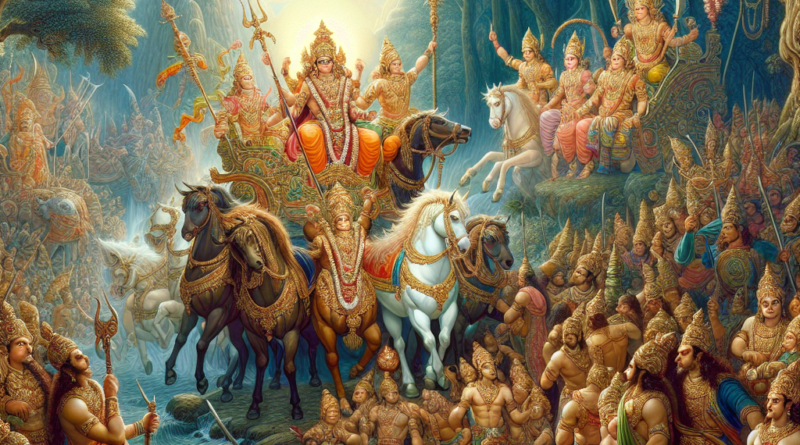Enchanting Tales: Ancient Indian Mythology Unveiled
Ancient Indian Mythology: Unveiling the Cultural Significance and Contemporary Relevance
Introduction:
Ancient Indian mythology is a rich tapestry of stories, legends, and beliefs that have been passed down through generations, shaping the cultural landscape of the Indian subcontinent. Rooted in Hinduism, the predominant religion of India, these myths provide insights into the values, beliefs, and traditions of the people of ancient India. In this article, we will explore the historical context of ancient Indian mythology, its cultural significance, and its relevance in contemporary Indian society.
Historical Context:
The roots of Indian mythology can be traced back to the Vedic period, which dates back to around 1500-500 BCE. The Vedas, the oldest sacred texts of Hinduism, contain hymns and rituals that form the basis of many myths and legends. The Puranas, a genre of ancient Indian texts, also play a significant role in shaping Indian mythology. These texts contain stories of gods, goddesses, demons, and heroes that reflect the societal values and beliefs of ancient India.
One of the most significant epics in Indian mythology is the Mahabharata, believed to have been composed between 400 BCE and 400 CE. This epic narrates the story of the Kurukshetra War between the Pandavas and the Kauravas and is filled with moral dilemmas, philosophical discourses, and complex characters. Another important epic is the Ramayana, which tells the story of Lord Rama’s quest to rescue his wife Sita from the demon king Ravana.
Cultural Significance:
Ancient Indian mythology is deeply intertwined with Indian culture, shaping art, literature, dance, and music. The stories of gods and goddesses such as Brahma, Vishnu, Shiva, Lakshmi, Saraswati, and Durga inspire devotion and worship among millions of Hindus. Festivals like Diwali, Holi, Navratri, and Dussehra are celebrated with great fervor, with each festival having its own mythological significance.
Indian mythology also provides moral and ethical guidance to individuals, emphasizing the importance of dharma (duty), karma (action), and moksha (liberation). The concept of karma, the law of cause and effect, is central to Hindu mythology, teaching individuals to act selflessly and with integrity.
Moreover, Indian mythology reflects the diversity and pluralism of Indian society, with different regions and communities having their own myths and legends. These stories are not just religious beliefs but also serve as a means of cultural identity and pride for the people of India.
Contemporary Relevance:
In contemporary India, ancient mythology continues to play a significant role in shaping societal norms and values. The principles of dharma, karma, and moksha are still relevant in guiding individuals to lead a righteous and fulfilling life. Many Indians turn to mythological stories for inspiration and guidance in navigating the complexities of modern life.
Indian mythology has also found its way into popular culture, with movies, television shows, and books drawing inspiration from ancient Indian epics and legends. Characters like Hanuman, Krishna, and Arjuna have become cultural icons, symbolizing strength, wisdom, and heroism.
Furthermore, Indian mythology serves as a source of unity and cohesion in a diverse and multicultural society. The stories of gods and goddesses are a common thread that connects people across different regions and communities, fostering a sense of shared heritage and identity.
Conclusion:
Ancient Indian mythology is a treasure trove of stories and beliefs that have shaped the cultural landscape of India for millennia. Rooted in the values and traditions of Hinduism, these myths continue to hold significance in contemporary Indian society, guiding individuals in their moral and ethical conduct. As India continues to evolve and embrace modernity, its ancient mythology remains a source of inspiration, wisdom, and cultural pride for generations to come.


Pingback: Rama's Exile: A Journey of Faith and Love - Rajput Proud